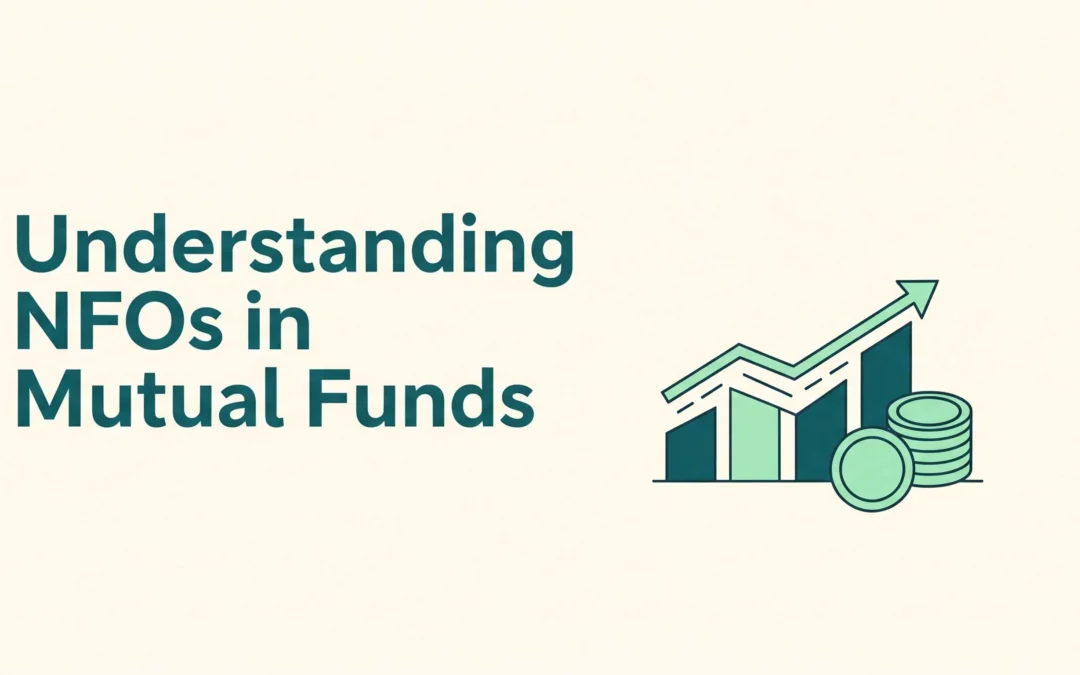Mutual fund is a wide concept. Investors may face difficulty in understanding all the investment options that come under it. One such option is NFO (New Investment Offer). It is a good opportunity to get an edge in the market, but like all investment options, it comes with certain risk. There is no past data, and the investor is signing up for something purely based on estimation.
This article will explain NFO in mutual funds in detail, along with its type, benefits, and risks associated with it. With all the information, you will be equipped to decide whether you should invest in it or not.
What is an NFO in Mutual Funds?
The initial subscription offers from an Asset Management Company (AMC) when launching a new mutual fund scheme are referred to as a New Fund Offer (NFO). Investors have the opportunity to purchase units at a set price.
For instance, investors can invest in an NFO with the advice of a financial advisor. After the NFO period ends, the fund manager invests the pooled money. The fund’s value (NAV) then fluctuates based on the performance of its underlying assets, reflecting profits or losses over time.
Types of NFO
Depending on the mutual fund scheme’s structure, NFOs can take various forms:
| Type | Meaning | Suitability |
| Open-Ended NFO | After the NFO period, there is no restriction on buying and selling of units. | Long-term investors seeking liquidity |
| Closed-Ended NFO | Units are locked in for a specific period and trade on exchanges after the NFO. | Investors who are comfortable with limited liquidity and willing to stay invested for the fund’s fixed tenure. |
| Interval Funds | Only permit transactions during the holding period at predetermined intervals. | Investors are looking to strike a balance between access and discipline. |
Should You Invest In NFO?
NFOs have several benefits, particularly for investors seeking concepts or first-mover advantages:
1. Exposure to New Themes in Investment
NFOs often present sector-specific opportunities and innovative ideas that current mutual funds may not provide. For example, they might concentrate on topics like global markets, electric cars, renewable energy, or artificial intelligence. If the theme does well over time, investing early in these sectors can give you a first-mover advantage.
2. Diversification of the Portfolio
NFOs can assist in diversifying your portfolio into new strategies, such as multi-asset funds, international equities, sector-specific funds, or hybrid models, if it is currently heavily weighted towards traditional equity or debt schemes. This lessens over-reliance on a particular asset class or geographic area and helps spread risk.
3. Reasonably priced admission
During the subscription period, most NFOs are sold at ₹10 per unit. This offers a consistent starting point and can promote disciplined investing for new or cautious investors, but it does not ensure low valuation or higher returns (since NAV is not a performance indicator).
4. Customized Investment Goals
To satisfy the various needs of investors, many NFOs are established with particular structures. For instance:
- For steady returns, use Fixed Maturity Plans (FMPs).
- ELSS NFOs for Section 80C tax savings benefits.
- ETFs or index funds provide inexpensive, passive market exposure. Investors find it simpler to select funds that fit their risk tolerance and financial objectives thanks to this customization.
Reasons to Avoid or Exercise Caution Around NFOs:
1. Absence of Historical Performance
Since NFOs lack a track record, unlike established funds, it is challenging to assess the performance or efficacy of the fund manager’s strategy.
2. Marketing Hype
Despite being heavily advertised, many NFOs don’t provide anything appreciably different from other schemes.
3. Liquidity Restrictions
Investors who require short-term access may find closed-ended NFOs unsuitable as they lock their investment for a predetermined amount of time.
4. Higher Initial Costs
Until they scale, new funds may have higher operating costs, which could marginally affect returns.
Based on the pros and cons, investors may decide if this investment option is suitable for them or not.
Bottomline
The conclusion can be drawn that NFOs are a good offer for investors willing to take the risk and the reward that comes along, like a first mover advantage. However, the risk associated with it is also huge, as there is no past data available, and the investment is made purely on estimation. In close-ended funds, there may also be a restriction on liquidity, which may not be viable for some investors. Investing in NFO requires analysis and research before making the decision to avoid any regret.


